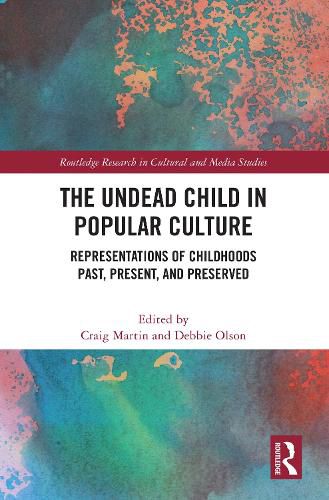Readings Newsletter
Become a Readings Member to make your shopping experience even easier.
Sign in or sign up for free!
You’re not far away from qualifying for FREE standard shipping within Australia
You’ve qualified for FREE standard shipping within Australia
The cart is loading…






In this study of representations of children and childhood, a global team of authors explores the theme of undeadness as it applies to cultural constructions of the child.
Moving beyond conventional depictions of the undead in popular culture as living dead monsters of horror and mad science that transgress the borders between life and death, rejuvenation, and decay, the authors present undeadness as a broader concept that explores how people, objects, customs, and ideas deemed lost or consigned to the past might endure in the present. The chapters examine nostalgic texts that explore past incarnations of childhood, mementos of childhood, zombie children, spectral children, images and artefacts of deceased children, as well as states of arrested development and the inability or refusal to embrace adulthood. Expanding undeadness beyond the realm of horror and extending its meaning conceptually, while acknowledging its roots in the genre, the book explores attempts at countering the transitory nature of childhoods.
This unique and insightful volume will interest scholars and students working on popular culture and cultural studies, media studies, film and television studies, childhood studies, gender studies, and philosophy.
$9.00 standard shipping within Australia
FREE standard shipping within Australia for orders over $100.00
Express & International shipping calculated at checkout
In this study of representations of children and childhood, a global team of authors explores the theme of undeadness as it applies to cultural constructions of the child.
Moving beyond conventional depictions of the undead in popular culture as living dead monsters of horror and mad science that transgress the borders between life and death, rejuvenation, and decay, the authors present undeadness as a broader concept that explores how people, objects, customs, and ideas deemed lost or consigned to the past might endure in the present. The chapters examine nostalgic texts that explore past incarnations of childhood, mementos of childhood, zombie children, spectral children, images and artefacts of deceased children, as well as states of arrested development and the inability or refusal to embrace adulthood. Expanding undeadness beyond the realm of horror and extending its meaning conceptually, while acknowledging its roots in the genre, the book explores attempts at countering the transitory nature of childhoods.
This unique and insightful volume will interest scholars and students working on popular culture and cultural studies, media studies, film and television studies, childhood studies, gender studies, and philosophy.